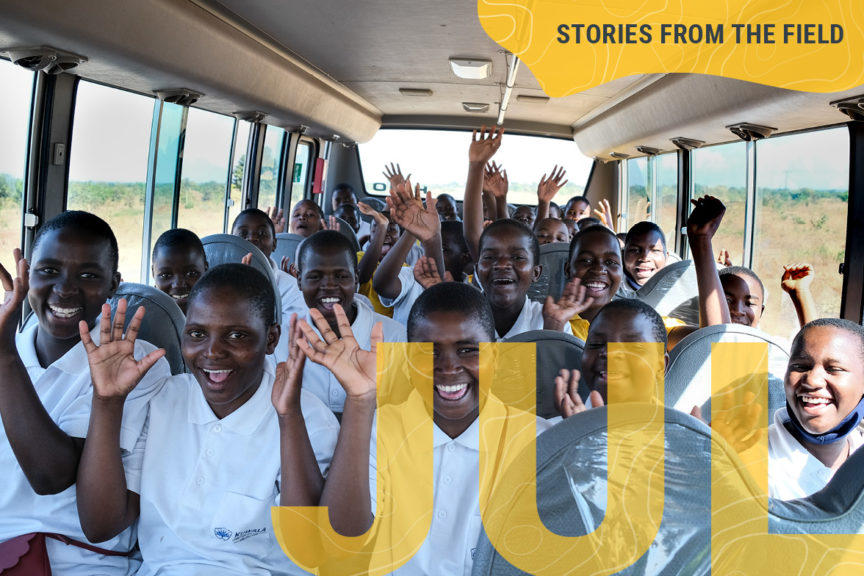
All aboard, a road trip.
The girls were excited to participate in their first trip off-campus. They had a good break from their studies and enjoyed a bus trip to a nearby river where they could rejoice in the natural environment as friends. They had time to relax and dance. They also appreciated a quick stop at a nearby village. The village children were happy and inspired to see our students.
лучшие займы без процентов
It’s not the destination, it’s the journey that counts.
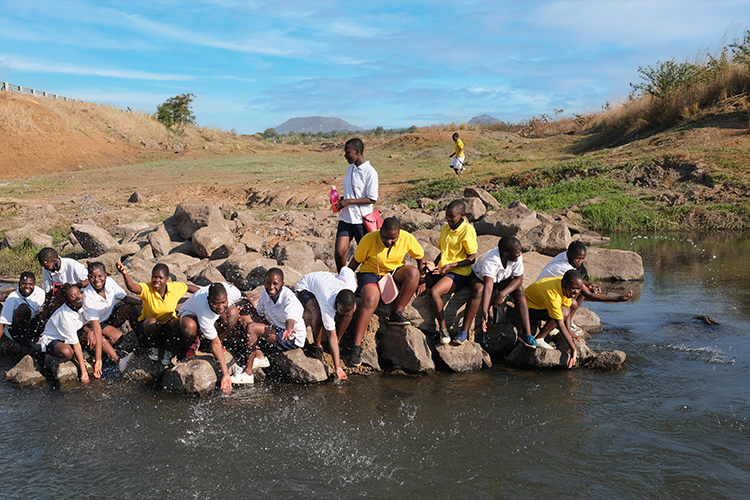
The trip was organized by Memory Mdyetseni, our Kuwala Board Director in Malawi. The highlight was having the girls hike through Malawi’s natural environment, the Victoria Gardens, and visiting a mountain village dressed in their uniforms
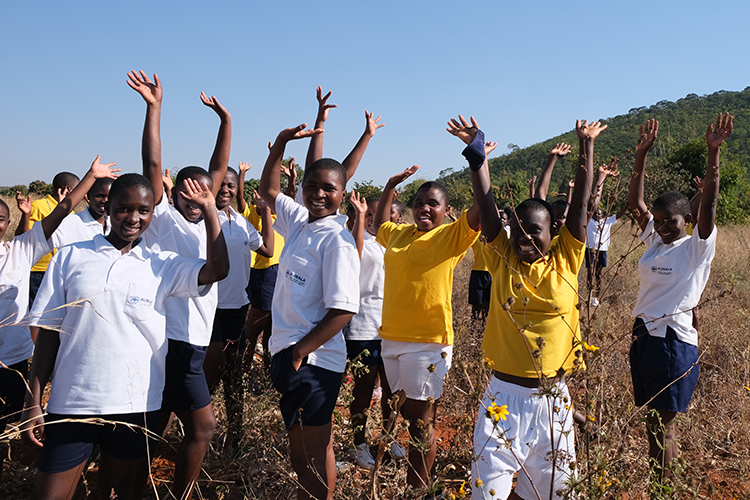
Land is not merely soil, it is a foundation of energy flowing through a circuit of soils, plants and animals.
Quote by: Aldo Leopold, environmental ethics founder
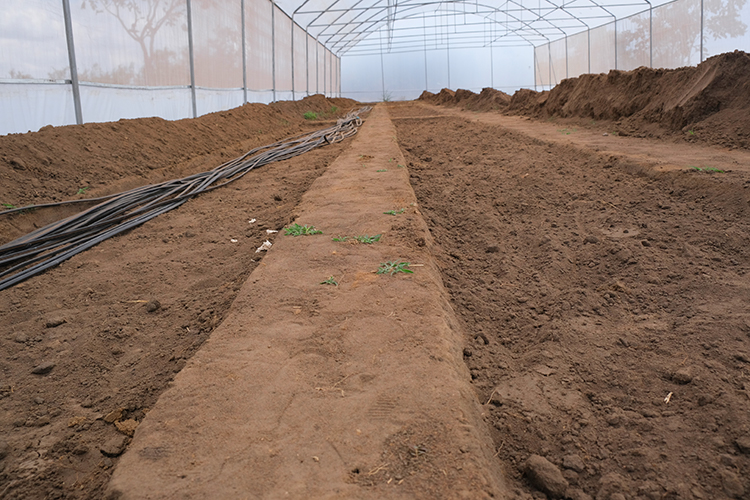
The new greenhouse is almost ready for planting! This greenhouse is four times the size of the original one and will allow for the growing of tomatoes and onions! The average staple in a Malawian kitchen, in order of importance, includes salt, tomatoes, onions, lettuce, beetroot and garlic. These items used together with the Nsima made from ground corn provide a delicious meal. Tomatoes and onions are eaten with almost every meal.
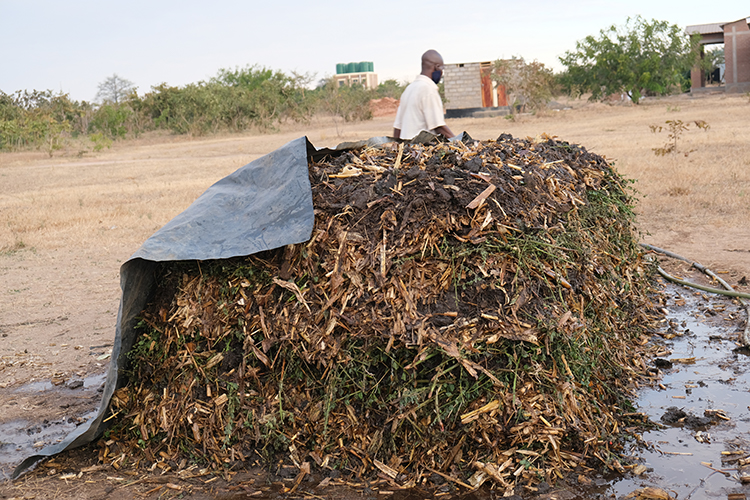
Preparation is underway to utilize ½ of the greenhouse for tomatoes. The compost is maturing, and the soil is being turned to loosen it to allow for better root penetration. The plan is to create six beds, each measuring approximately 1 metre by 30 metres, yielding a crop of 300 kgs of tomatoes every week. The other half of the greenhouse will produce a whole bunch of onions.
A drip irrigation system has been installed in the greenhouse, which draws water directly from the well on campus. This water has not been treated with any chemicals, so the plants and the drip irrigation system helps with water conservation. For example, ten times the amount of water is used when watering with a traditional watering can or hose.
The naked soil beds are covered with a black plastic sheet that protects from water evaporation, retains heat, allowing for better germination and controls and eliminates weeds. The general area is neat, clean and dry. Tending to the plants in the greenhouse is much more efficient in this organized and clean environment.
The greenhouse allows Kuwala to grow crops during the rainy season when there is a demand for fresh tomatoes. In addition, the crops grown indoors are protected, chemical-free, and have fewer input costs.
Independence Day in Malawi – July
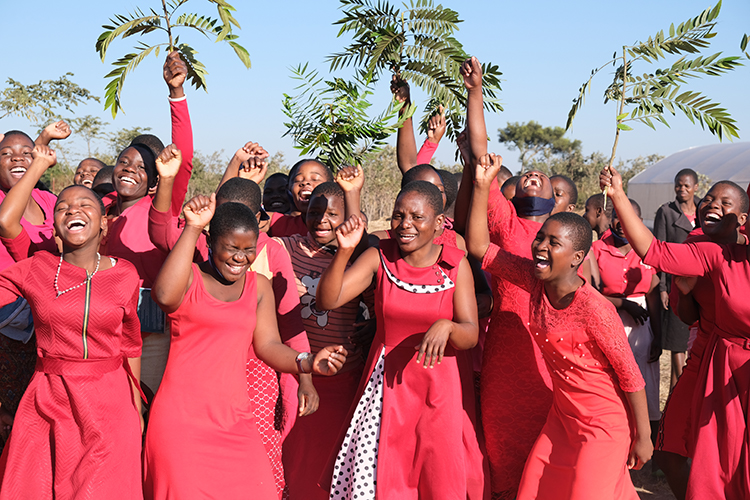
The Independence Day holiday in Malawi was celebrated at the Kuwala campus on Friday, July 9th, with lots of joy and dancing. In addition, activities and get-togethers were held throughout the community with family and friends. Independence Day is a big commemoration in Malawi and is an occasion to wear red or dress in your finest outfit. Quick fact: In 1859, Dr. David Livingstone discovered Lake Malawi and led the way for future missionaries. British colonial rule dissolved in 1963, and Malawi became independent as a member of the Commonwealth of Nations on July 6, 1964
Give blood and keep the world beating
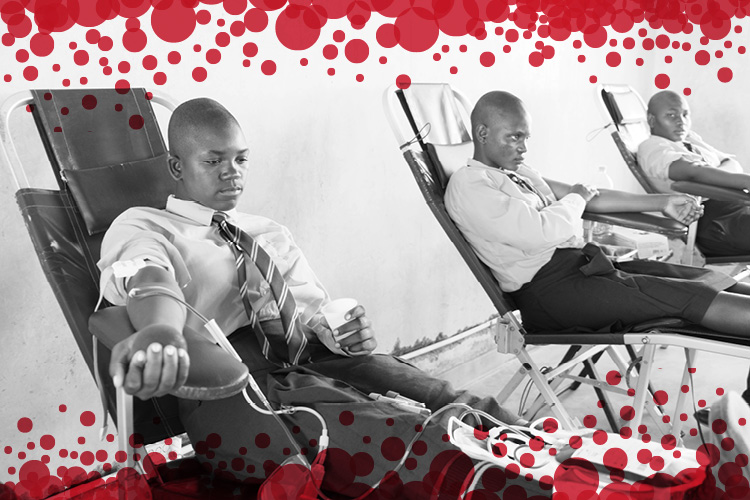
On 14 June 2021, the Malawi Blood Transfusion Service (MBTS), in collaboration with the Ministry of Health, joined the World Health Organization and international communities to commemorate World Blood Donor Day (WBDD) under the theme: ‘Give Blood and Keep the World Beating.’ To help support this initiative, the Kuwala girls answered the call and rolled up their sleeves. This is another example of the girl’s leadership in action and giving back to the community in times of need.
The purpose of MBTS is to develop a sustainable supply of safe blood and blood products in Malawi. For every pint of blood donated more than three lives are saved. According to the WHO, every day, about 800 women die from pregnancy or childbirth-related complications. Children under five need blood and blood products due to malaria-induced anaemia. Almost all of these deaths occur in developing countries. More than half of them occur in Sub-Saharan Africa, including Malawi. Women and children form the major recipient groups of blood transfusions, but blood products are also needed by the community population suffering from cancer and other diseases. Trauma victims are also major beneficiaries of blood transfusion.
The girls are grateful for the lessons and opportunities to learn, and armed with this knowledge; they understand a greater purpose for each of their lives starts by giving back what you can afford to give — blood.
Hello, Meet McSensio Raphael
– Biology Teacher, Head of Administration, Photographer and Small Projects Manager
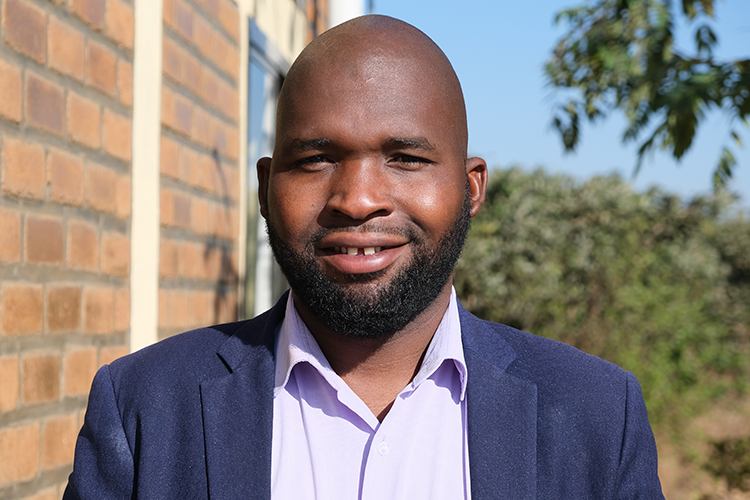
In his own words…_
I was born into a Christian-catholic family of four. At ten years old, both my parents passed on. There was no one to support my education and so dropping out was the only option until a British couple that came to Malawi on a 10-year contract came to my rescue. Put a roof over my head, gave me parental guidance, and supported my education until I graduated with an Agriculture diploma from Natural Resources College. I worked for two years as a science teacher before going to Mzuzu University, where I graduated with a bachelor’s degree in Forestry with the support from the same generous couple even though they had returned to their home country by this time.
Today, I’m happy to work at Kuwala and believe in its mission and vision. The team at Kuwala is addressing challenges that many less privileged girls face while trying to receive an education. Kuwala values grades at the end of exams and places importance on empowering them to know their rights and fight gender-based violence, one of the “pandemics” in Africa.
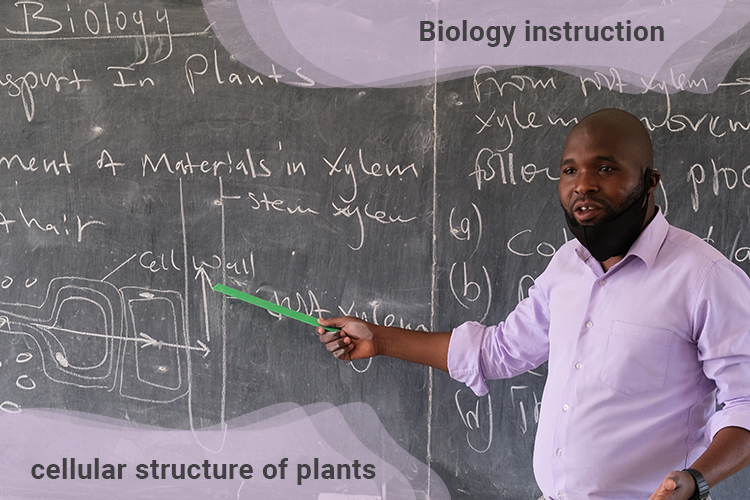
Teaching at Kuwala is a meaningful job because the girls want to learn the curricular content and many other aspects of life, including new ways of living, how to show love for others, Christianity, technology, and sports. When the girls reach my age, most will be more civilized and more innovative than us, and for that, I respect them.
Most of these girls come from places with no role models and exposure to education or human rights. So they started setting goals and woke up from a dream that women are meant to count on a man’s success. Through the quality of education and the hard work of the teachers guiding them, they will realize their strength and potential. I see the girls in various disciplines like Health, Science and Technology, Entrepreneurship, Entertainment and Education.
I would choose Kuwala as a school for my daughter because I know she would grow spiritually, in excellence, morally and most importantly, she would understand the value of her life and make sound decisions.
Welcome, meet Khumbo – a student at Kuwala
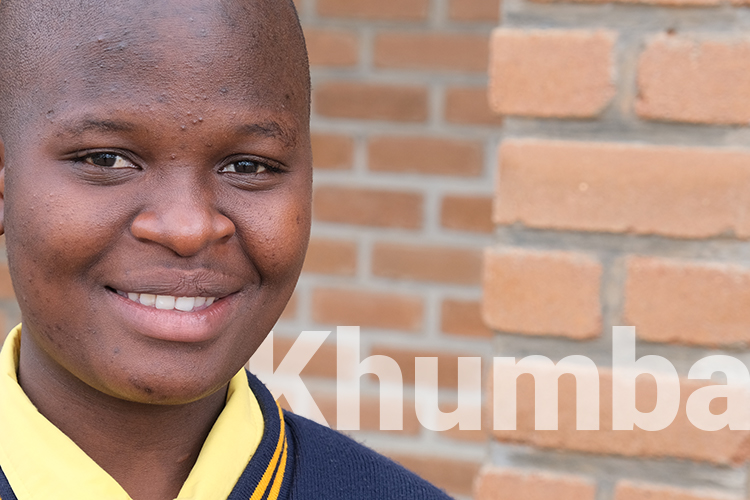
In her own words…
I come from a family of two sisters and two brothers. I wanted to go to secondary school to improve my future and my goal of becoming an engineer and supporting my family. So when I found out I was accepted to Kuwala, I was happy because I knew my dreams and purpose would be achieved. My family was delighted, as I am the first daughter to go to secondary school. They hope I will be the one supporting my siblings. My favourite learning activities are science projects, math, learning English and computer skills. To achieve my goals, I need these activities.
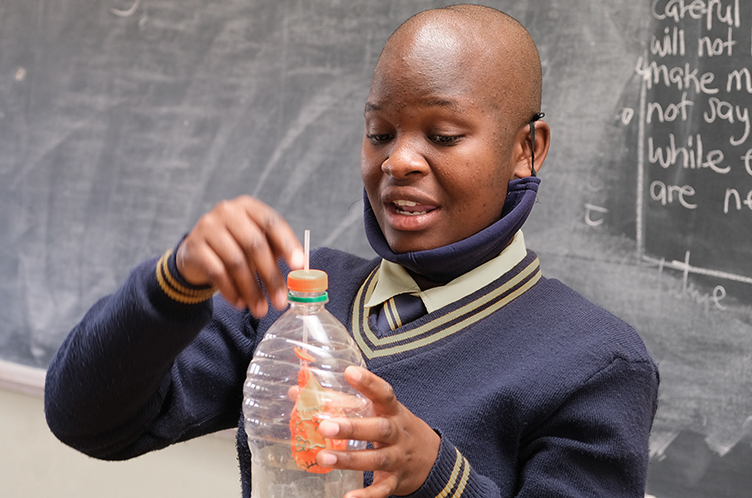
I enjoy living on campus because there are beautiful toilets, which I had never seen before, a friendly hostel, nutritious food, and a classroom, which have made my life better. I enjoy group discussions because they help me in other subjects and improve me in my studies. I like the story-telling sessions because it encourages me to know what others do in different countries and here in Malawi and helps in my creative thinking. In addition, I enjoy playing netball and conducting experiments.
Digital technology for St. Peter’s Assembly Hall
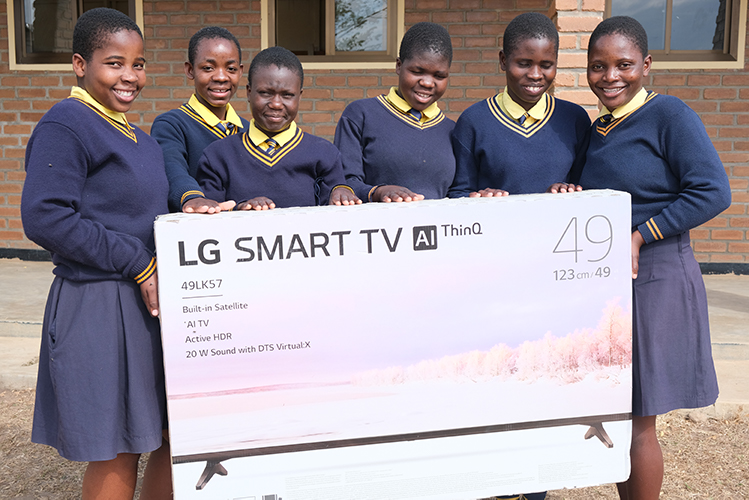
St. Peter’s Assembly Hall gets new technology with the addition of a large television screen! The girls have always been encouraged to ask questions and interact with their teachers, and the new screen will provide more teaching opportunities for the curriculum. Rarely does this happen in a school setting! In addition, the students will be able to watch videos, documentaries and movies to supplement their learning and improve their English. This visual medium will allow them to see and hear conversation, accents and animation in English.
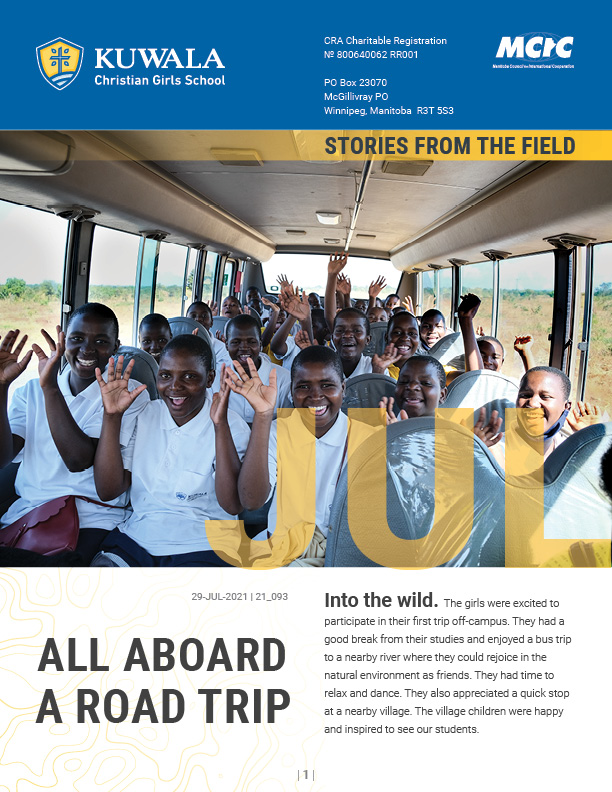
Print friendly version is available on the website
If you would rather view this on an iPad® or download a print-friendly version, visit our website under the menu heading: stories/newsletters or click the button below.
